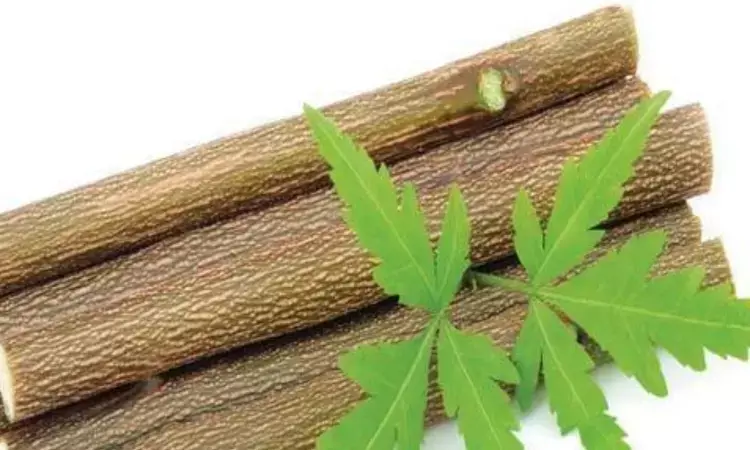- Home
- Medical news & Guidelines
- Anesthesiology
- Cardiology and CTVS
- Critical Care
- Dentistry
- Dermatology
- Diabetes and Endocrinology
- ENT
- Gastroenterology
- Medicine
- Nephrology
- Neurology
- Obstretics-Gynaecology
- Oncology
- Ophthalmology
- Orthopaedics
- Pediatrics-Neonatology
- Psychiatry
- Pulmonology
- Radiology
- Surgery
- Urology
- Laboratory Medicine
- Diet
- Nursing
- Paramedical
- Physiotherapy
- Health news
- Fact Check
- Bone Health Fact Check
- Brain Health Fact Check
- Cancer Related Fact Check
- Child Care Fact Check
- Dental and oral health fact check
- Diabetes and metabolic health fact check
- Diet and Nutrition Fact Check
- Eye and ENT Care Fact Check
- Fitness fact check
- Gut health fact check
- Heart health fact check
- Kidney health fact check
- Medical education fact check
- Men's health fact check
- Respiratory fact check
- Skin and hair care fact check
- Vaccine and Immunization fact check
- Women's health fact check
- AYUSH
- State News
- Andaman and Nicobar Islands
- Andhra Pradesh
- Arunachal Pradesh
- Assam
- Bihar
- Chandigarh
- Chattisgarh
- Dadra and Nagar Haveli
- Daman and Diu
- Delhi
- Goa
- Gujarat
- Haryana
- Himachal Pradesh
- Jammu & Kashmir
- Jharkhand
- Karnataka
- Kerala
- Ladakh
- Lakshadweep
- Madhya Pradesh
- Maharashtra
- Manipur
- Meghalaya
- Mizoram
- Nagaland
- Odisha
- Puducherry
- Punjab
- Rajasthan
- Sikkim
- Tamil Nadu
- Telangana
- Tripura
- Uttar Pradesh
- Uttrakhand
- West Bengal
- Medical Education
- Industry
COVID- 19: Bark of Neem tree can protect against variants, suggests study

New Delhi: We may have often heard the elders in our family boast about the properties of Neem and its use in treating many physical ailments and diseases. But what about the infamous coronavirus? Does our trusty old Neem tree have any chances of protecting against it? A recent study has suggested that this may be actually possible!
According to a new study led by scientists at the University of Colorado Anschutz Medical Campus and the Indian Institute of Science Education and Research Kolkata, extract from the bark of the Neem tree may help treat and reduce the spread of coronavirus.
The study was published in the journal, 'Virology'.
The study reported showed that components of Neem bark may target a wide range of viral proteins, suggesting its potential as an antiviral agent against emerging variants of coronaviruses (including SARS-CoV-2).
The Neem tree, indigenous to India, has been used for thousands of years for its anti-parasitic, anti-bacterial, and antiviral properties. The bark extract has helped treat malaria, stomach, and intestinal ulcers, skin diseases, and many other diseases.
"The goal of this research is to develop a Neem-based medication that can reduce the risk of serious illness when someone is infected with coronaviruses," said study co-author Maria Nagel, MD, research professor in the department of neurology and ophthalmology at the University Of Colorado School Of Medicine on the CU Anschutz Medical Campus.
"We hope that scientists won't have to continuously develop new therapies every time a new SARS-CoV-2 variant emerges," she said. "Just like how we take penicillin for strep throat, we envision taking the Neem-based drug for COVID, allowing us to resume our normal lives without fear of hospitalization and death."
The scientists investigated the impact of the bark extract against coronaviruses in their laboratories. In India, researchers tested it in animal models and showed that it had antiviral properties against coronavirus. Using computer modeling, the researchers predicted that Neem bark extract will bind to the SARS-CoV-2 spike protein at various locations, preventing virus entry to host cells.
At CU Anschutz, Nagel's lab tested the Neem bark extract in SARS-CoV-2 human lung cells. It proved as effective as a preventive drug for infection and also decreased virus replication and spread after infection.
"The next step in our research is to identify the specific components in Neem bark extract that are antiviral. Because these components bind to various regions of SARS-CoV-2, we believe that it will be effective on emerging variants with spike mutations," said Nagel. "We will then determine the formulation of dosage for an antiviral drug to treat coronavirus infections."
The scientists said this research could guide new antiviral therapeutic efforts to combat the ongoing pandemic while holding out the promise for treating new coronavirus strains.
Also Read:New study raises suspicion of coronavirus being developed in lab
Medical Dialogues Bureau consists of a team of passionate medical/scientific writers, led by doctors and healthcare researchers. Our team efforts to bring you updated and timely news about the important happenings of the medical and healthcare sector. Our editorial team can be reached at editorial@medicaldialogues.in.


